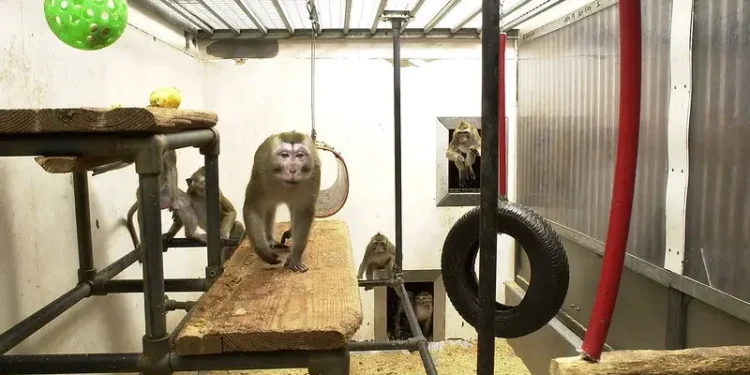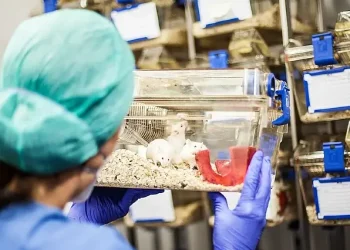Lord Hanson has accepted all recommendations from the Animals in Science Committee’s 2022 report on non-human primates bred for scientific purposes, signaling a significant shift in UK research practices. This move aims to enhance ethical standards and transparency, potentially impacting research protocols and public trust.
Government Commitment to Ethical Research
The UK government’s acceptance of the Animals in Science Committee’s recommendations marks a pivotal moment in the regulation of non-human primate research. By endorsing these measures, Lord Hanson emphasizes the importance of ethical oversight and welfare standards in scientific practices.
This decision aligns with ongoing efforts to ensure transparency and accountability within the UK’s biomedical research sector.
Implications for Research Institutions
- Research institutions may need to revise breeding and care protocols for non-human primates.
- Potential increase in operational costs due to enhanced welfare standards.
- Stricter regulations could affect timelines and budgets for pharmaceutical companies relying on primate models.
- Improved credibility and social license for UK science through adherence to ethical guidelines.
The Broader Effect on Society
This development is not only significant for researchers but also holds implications for the general public. Enhanced animal welfare standards may reassure citizens concerned about ethical practices in scientific research. The changes could influence access to medicines developed through primate research by ensuring higher ethical standards, potentially affecting healthcare innovation and availability.
A Historical Perspective
The response from Lord Hanson builds upon decades of evolving policies under the Animals (Scientific Procedures) Act 1986, which emphasizes the 3Rs principle—Replacement, Reduction, Refinement—in animal research.
The 2022 report addressed important issues such as breeding practices, welfare conditions, and scientific justification for using primates. This commitment continues the UK’s leadership in ethical animal research while aligning with public expectations and legal requirements.
International Influence and Future Challenges
The UK’s acceptance of these recommendations sets a high standard that could influence international norms and collaborations. Other countries might view this as a model for balancing scientific advancement with animal welfare. However, implementing these changes may present challenges such as funding constraints and adapting existing infrastructure while maintaining competitiveness in global biomedical research.
Additional Reading
Bottom Line
This comprehensive acceptance of recommendations by Lord Hanson underscores a commitment to advancing ethical standards in UK science policy. While it presents challenges such as increased costs and regulatory adjustments, it ultimately enhances public trust and positions the UK as a leader in humane scientific practices globally.
More of Todays Top Breaking Government News Stories!
Sources: UK Government, PMC, Animal-Free Science Advocacy, Animals in Science Committee, Home Office and The Rt Hon Lord Hanson of Flint.
Prepared by Ivan Alexander Golden, Founder of THX News™, an independent news organization delivering timely insights from global official sources. Combines AI-analyzed research with human-edited accuracy and context.









